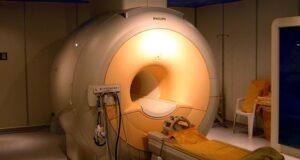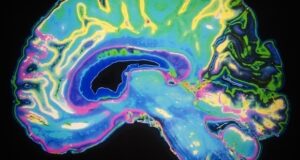
Smokers with myelodysplastic syndromes (MDS) or a precursor condition had elevated levels of genetic mutations linked to the disease, a new study shows. The study also found that heavier smokers accumulated more mutations, and long-term smokers were more likely to show disease progression.
Led by Sangeetha Venugopal, M.D., M.S., a physician-scientist at Sylvester Comprehensive Cancer Center, part of the University of Miami Miller School of Medicine, the study further suggests that quitting smoking may positively affect the course of disease, underscoring the importance of smoking cessation counseling.
“The message from this study should be to initiate tobacco cessation counseling in patients who carry a new diagnosis of MDS or its precursor conditions,” said Venugoapal, who is the study’s lead author and will present the findings at the American Society of Hematology (ASH) annual meeting, held Dec. 7-10 in San Diego.
Part of a larger study
Tobacco is highly addictive and is used by about 1.3 billion people worldwide, according to the World Health Organization. Tobacco smoking kills up to half of users who do not quit.
Tobacco-related lung cancers have been shown to be linked to the accumulation of DNA mutations caused by carcinogens in tobacco smoke. But little is known about the relationship between smoking and DNA damage in blood cancers.
To fill the gap, Venugopal and colleagues examined data from a larger research effort, the National MDS Natural History Study, sponsored by the National Heart, Lung, and Blood Institute (NHLBI) in collaboration with the National Cancer Institute (NCI). The study aims to create a comprehensive dataset of patient history along with linked collections of biospecimens, such as blood and bone marrow samples, in patients with recently diagnosed MDS or a precursor condition such as clonal cytopenia of undetermined significance (CCUS).
Researchers are tapping into the data to investigate molecular and biological factors associated with MDS to improve clinical management and potentially develop new treatments.
Mikkael Sekeres, M.D., M.S., chief of the Division of Hematology at Sylvester, chairs the five-year, multi-center MDS Natural History Study.
“Sylvester is a world leader in MDS research and patient care and is always investigating risk factors for developing cancer and interventions we can make to reduce our patients’ risk,” said Sekeres, who is also the corresponding author of the current analysis presented at the ASH meeting.
DNA mutations, disease progression and survival
The newly presented research involved 1,898 patients, 52% of whom had a history of smoking. The researchers assessed the number of mutations linked to MDS in the patients’ bone marrow samples using a panel of about 80 known mutations.
Smokers had, on average, more mutations than non-smokers in specific genes linked to disease (2.0 vs 1.4). The top 10% of heaviest smokers showed 3.5 times more mutations than non-smokers.
Long-term smokers with precursor conditions were also much more likely to progress to MDS within five years compared to non-smokers or people with a shorter smoking history (27% compared to 18%). Smokers with CCUS also had shorter overall survival than non-smokers.
The analysis provides much-needed data on the links between tobacco smoking, DNA mutations and disease risk in MDS, said Sekeres.
While smoking is a recognized risk factor for developing blood cancers, this is the first study to identify discrete genetic mutations that are associated with smoking, to establish a dose-response relationship between smoking and genetic mutations (the more you smoke, the more mutations occur); and to show that continuing to smoke leads to more mutations and worse MDS. We should encourage patients to stop smoking after their diagnosis.”
Mikkael Sekeres, M.D., M.S., Chief of the Division of Hematology at Sylvester
Smoking cessation
The blood of smokers contains dozens of carcinogens, many of which damage DNA directly. Future areas of research include assessing the accumulation of mutations over time as patients progress from precursor disease to MDS.
Meanwhile, the new findings should change how physicians counsel patients who smoke, said Venugopal, who is also an assistant professor of hematology at the Miller School.
Patients with MDS or its precursor conditions sometimes wonder if quitting smoking is truly worth it since they already are ill, said Venugopal. The new data drive home the message that patients can benefit from tobacco cessation.
Some studies have suggested that quitting, even in the short term, might be beneficial for certain cancers, she said.
“Now we can show patients what happens when people continue to smoke,” said Venugopal. “I don’t want them to blame the disease on their smoking, but I also don’t want them to smoke.”




